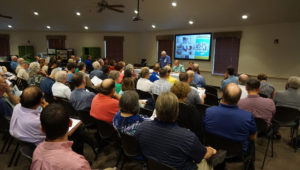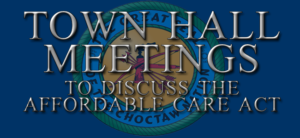Markwayne Mullin has a curious way of honoring this tax-filing season.
All the Republican congressman from eastern Oklahoma did was tell a fired-up town hall audience the other day that they don’t pay his congressional salary. No sir. He has essentially “prepaid” his own $174,000 annual salary by forking over all that tax revenue from his multiple businesses, or so he said.
So help me, if there was a prize for creative (non)thinking, I am quite certain Rep. Mullin would be a finalist for the Mother of All Booby Prizes.
Here is part of how the Washington Times reported Mullin’s, um, strange rationale: “You said you pay for me to do this. Bullcrap. I pay for myself. I paid enough taxes before I got there and continue to through my company to pay my own salary. This is a service. No one here pays me to go,” Mr. Mullin said in a video of the exchange. “I do it as an honor and a service.”
An honor and a service? Is that what you call it, young man?
Even though I am not one of your constituents, I applaud this fellow for calling his congressional service an “honor.” However, he isn’t doing it on his own dime. He’s doing it with money paid by taxpayers all across the nation. That includes those of us who live way over yonder in the Texas Panhandle, which is a good distance from the district Mullin serves.
To be candid, such reasoning about his own tax burden paying for his congressional service insults the intelligence of those who heard him say it at the town hall gathering. It also insults the rest of us who know better than to believe the nonsense this guy sputtered.
The only “bullcrap” mentioned by this young member of Congress was the notion that taxpayers aren’t footing the bill for his service on Capitol Hill.
This is just me thinking out loud at the moment, but I venture to guess that Rep. Mullin has just “bullcrapped” his way out of office after the next congressional election.





